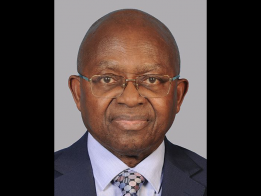Shining Light on Clinicians Serving the Inherited Blood Disorders Community.
Introducing Dr. Sophia Delicou, a clinical hematologist and Head of the Thalassemia and Sickle Cell Unit – Expertise Center of Hemoglobinopathies and their Complications, Hippokrateio General Hospital Athens, Greece.
 GANSID: What is your specialty, and why did you choose that specialty?
GANSID: What is your specialty, and why did you choose that specialty?
Dr. Delicou: I first wanted to specialize in pediatric oncology, but hematology caught my attention throughout training. Hemoglobinopathies, which combine pathology, cardiology, endocrinology, and more, attracted my attention. This field of Hematology covers a wide range of medicine. Also, I build long-term relationships with patients, and I can see the difference in their lives over time.
GANSID: Can you share a major challenge you have or currently encountering in your practice that may or may not be peculiar to your region or country
Dr. Delicou: I am lucky to work in a well-run public hospital where my department is connected to all the specialists required for patient monitoring and continuity of care over the long term, but this is not the case across my country. Particularly, patients from the countryside encounter significant barriers because they frequently have to travel great distances for basic follow-up assessments. Periodic blood shortages for transfusion-dependent patients are another significant problem that causes a great deal of inconvenience, particularly in the summer.
GANSID: How have you been able to overcome the challenge?
Dr. Delicou: To solve these problems, our department has taken several actions. To minimize long-distance patient travel, we collaborate with local healthcare providers. This avoids the need for long-distance travel and allows remote follow-up and consultations. To reduce blood shortages, we promote blood donation through local campaigns and patient associations, especially in summer. We plan proactively and collaborate with blood bank services to manage blood inventory and prioritize transfusion-dependent patients. We cannot eliminate all challenges, but our efforts have helped our patients.
GANSID: A successful clinical story you would like to share?
Dr. Delicou: I think every patient is unique, and every improvement in their health is first their own success and, secondly, our success. It’s the patients who successfully followed their iron chelation treatment, the women who made it to motherhood, and the patients who took a chance on clinical trials and improved with new treatments. I don’t think I can talk about just one success story; it wouldn’t be fair to the others. In this battle, everyone wins in their own way.
GANSID: What advice do you have for fellow clinicians?
Dr. Delicou: For every patient sitting in front of you, always remember that outside the clinic, at their home, someone is waiting for them. It could be their parents, partners, friends, or children —someone is there, waiting for them. Just as your own parents, friends, or partner are waiting for you. That’s why you must always do your best, just as you would want others to do for you and your loved ones. Medicine today provides numerous tools for diagnosis, monitoring, and learning. However, we must never forget empathy and our humanity.


